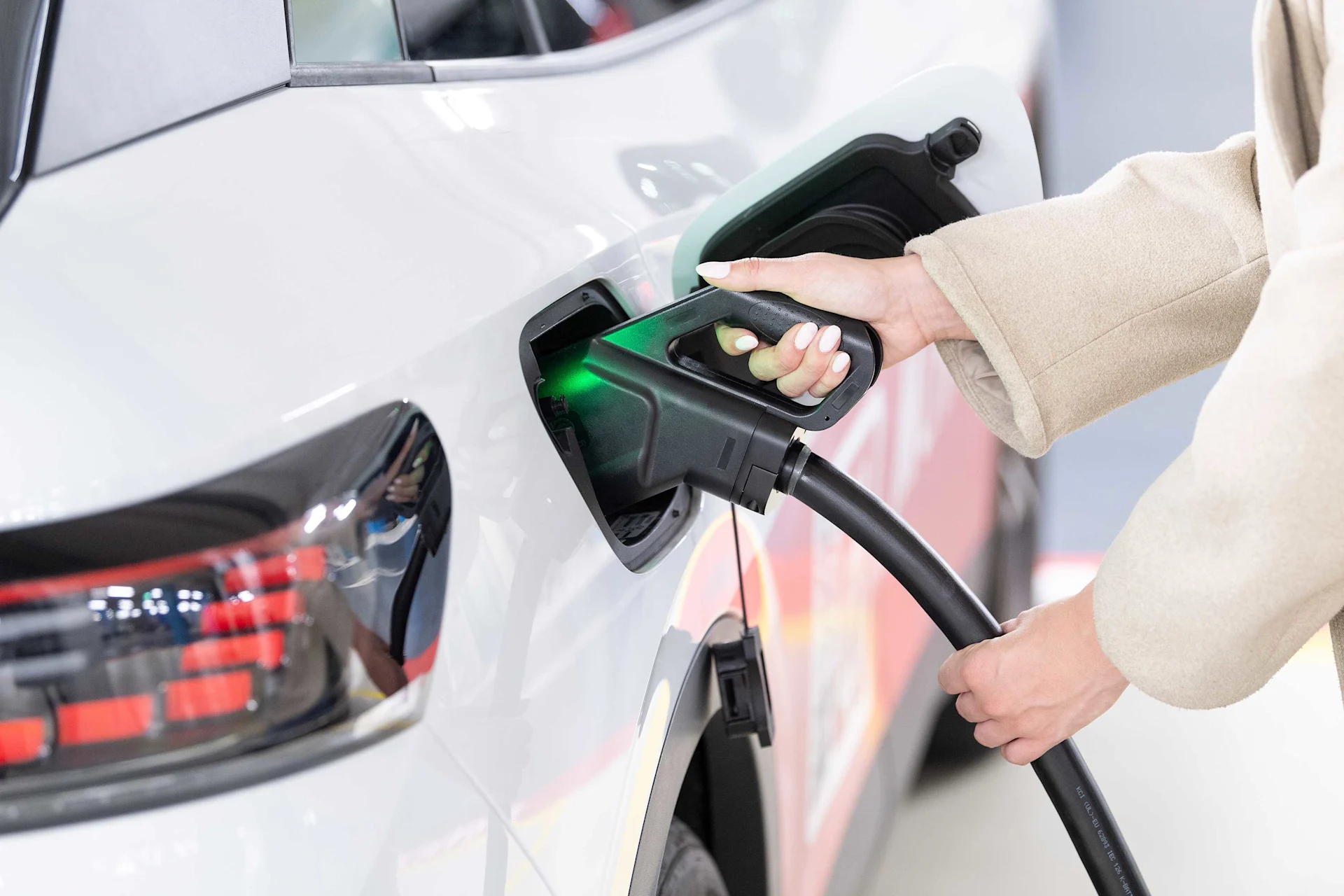
Climate & energy
Maximising your electric car's lifespan
What can you do to ensure that the batterie continues to work perfectly for many years to come?
navigation
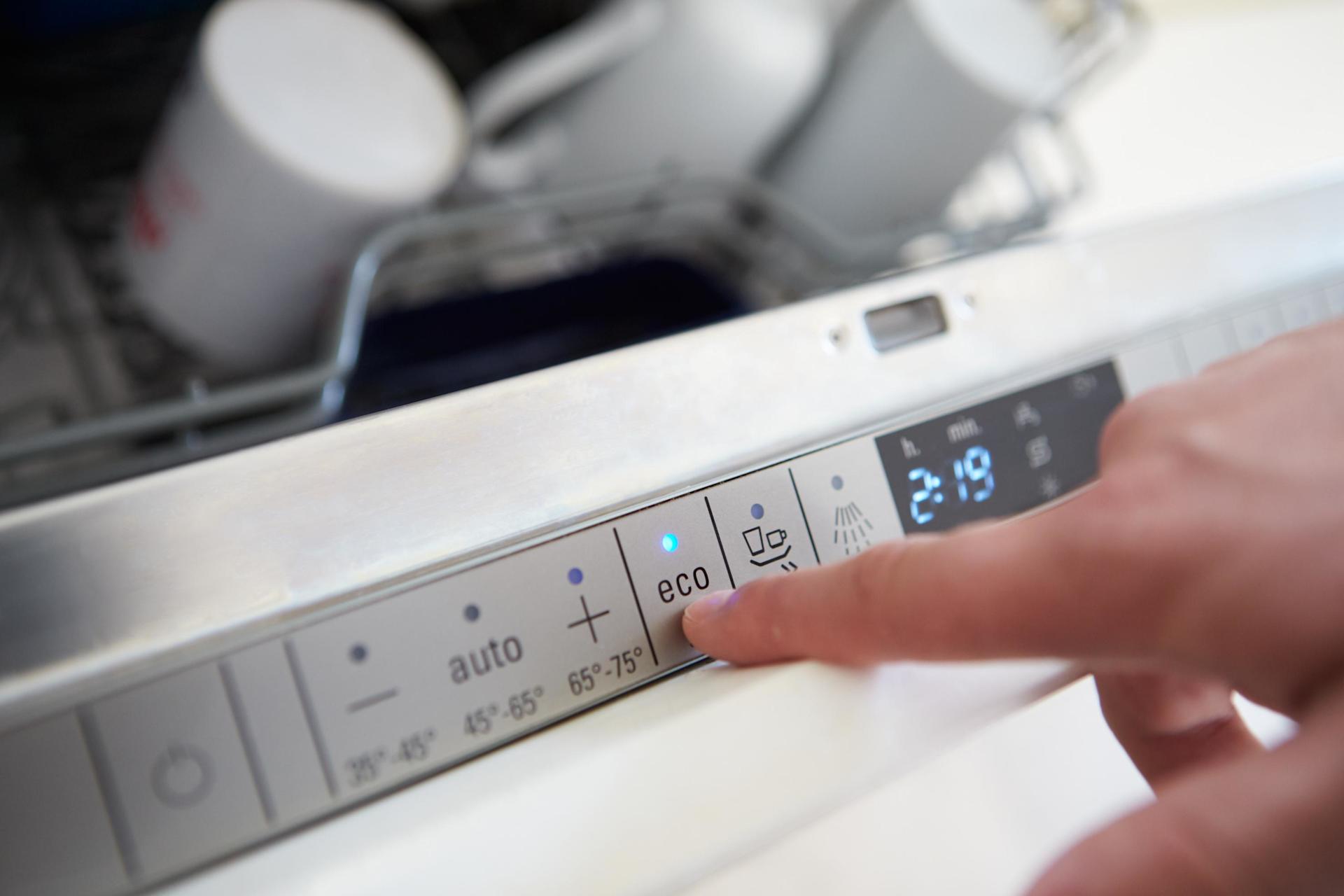
Climate & energy
Protect the climate, save electricity, live sustainably – we have some simple tips for saving energy at home, be it in the kitchen, bathroom or living room.
Electricity, heat and hot water – reduce energy consumption by up to 20 per cent by following a few simple tips and tricks. For the sake of the environment and your wallet.
Heat water in the kettle first, then pour it into the pan.
Insider tip: put a glass lid on the pan to keep a better eye on the food and save energy at the same time, as you don’t need to lift the lid so often.
While we’re on the subject, the lid needs to fit – as this shortens the cooking process and uses three to four times less energy.
Don’t add salt until the water is boiling – water heats up more quickly without salt.
Surprisingly, there’s no need to preheat the oven. Put casseroles, baked vegetables or similar food straight into the (still) cold oven. Then simply leave the food in the oven for slightly longer than it says in the recipe.
Avoid using the oven to reheat food, as it consumes around seven times more energy than a pan or a microwave.
Avoid opening the oven door to take a look too often, as the oven loses around 20 per cent of its heat each time you do this.
More cooking and baking tips.
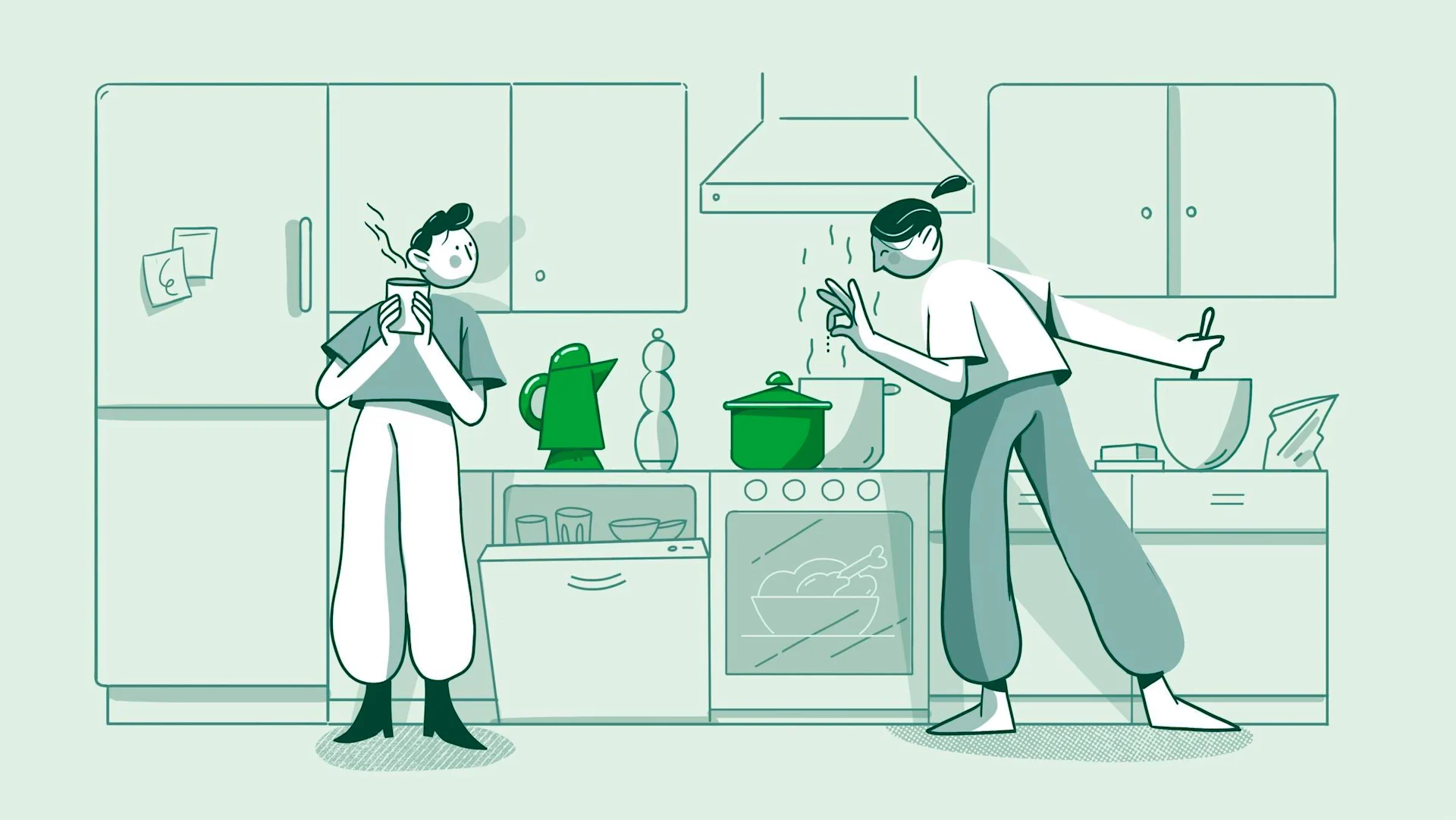
The door must close properly. In other words, make sure the seal on the fridge or freezer door is not cracked or brittle.
Ensure that left-over food has cooled down fully before putting it into the fridge. Otherwise, the heat given off by the food will eat up energy.
Know what you need from the fridge or freezer before opening the door. Leaving the door open for too long is a waste of energy.
Set the fridge to six rather than four degrees Celsius.
Thaw frozen goods in the fridge overnight, as this cools down the fridge, saving energy.
Keep an eye out for the Topten label when buying a freezer.
The government pays CHF 70 towards energy-efficient appliances that have the Topten label.
Pre-rinsing is overrated – it’s sufficient to wipe away left-over food with a brush.
Avoid washing up by hand if possible, as it uses more water than the dishwasher’s Eco program. Dishwasher:
Only run the dishwasher if it is completely full. If using tabs, ensure that they are highly biodegradable.
Drink less coffee – it has the biggest footprint of all beverages, with one cup of coffee creating as much CO2 as a 1-kilometre journey by car.
You need hot water in order to have a hot shower, and hot water needs a lot of energy. So take fewer, shorter showers. If you take a shower rather than a bath and switch off the water while lathering, you can reduce water and energy consumption by up to 80 per cent.
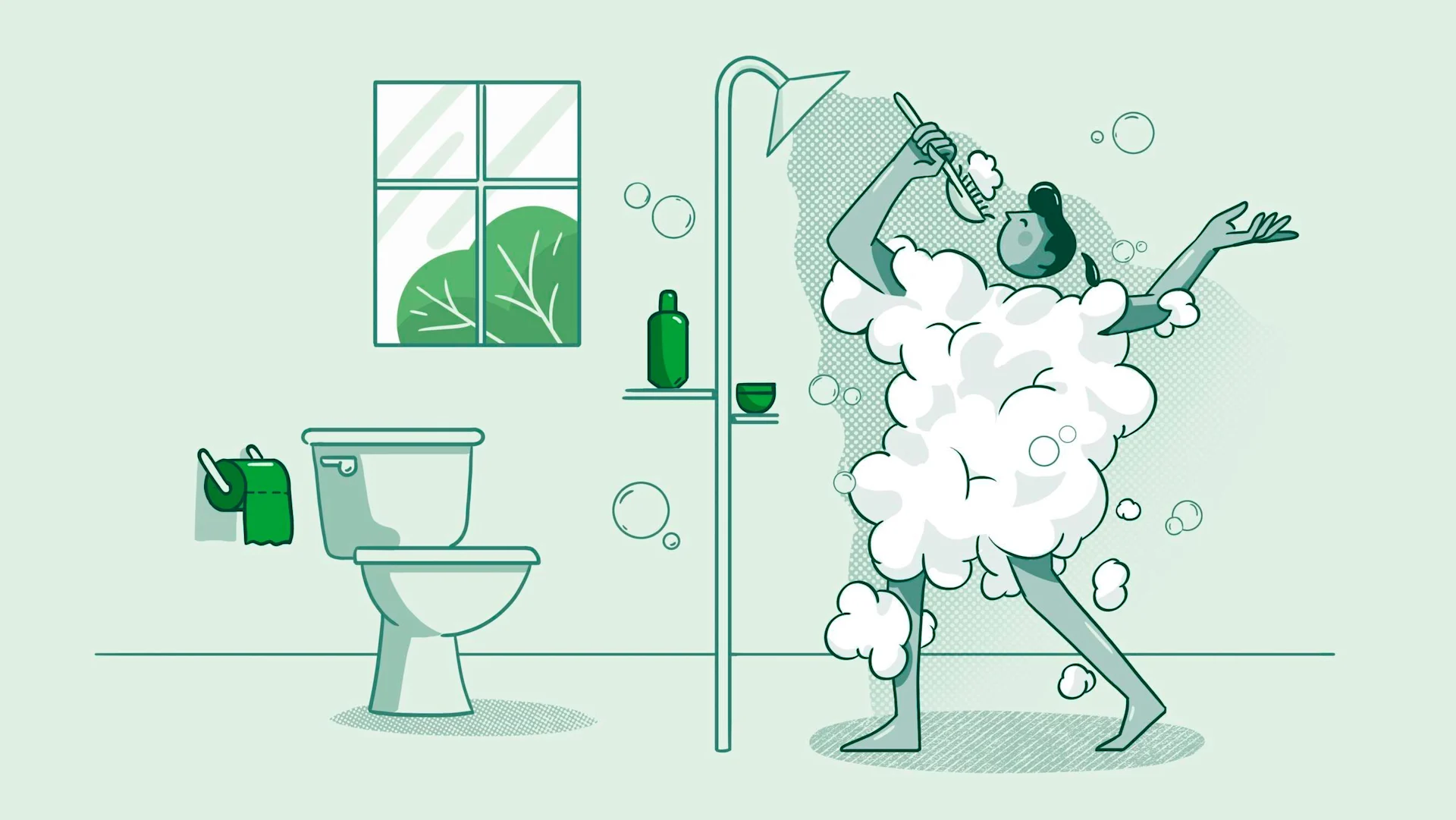
It’s also important to use the water-saver button on dual-flush toilets, as this can save up to five litres of water each time you flush. To be even more sustainable, use recycled toilet paper, as it is three to five times less environmentally harmful than virgin-fibre paper.
Fill your washing machine to the maximum recommended level and use environmentally friendly washing powder or tabs. You will save energy if you do most of your washing at 30 degrees Celsius.
Use a washing line instead of the tumble dryer – tumble dryers are one of the biggest energy consumers in the household.
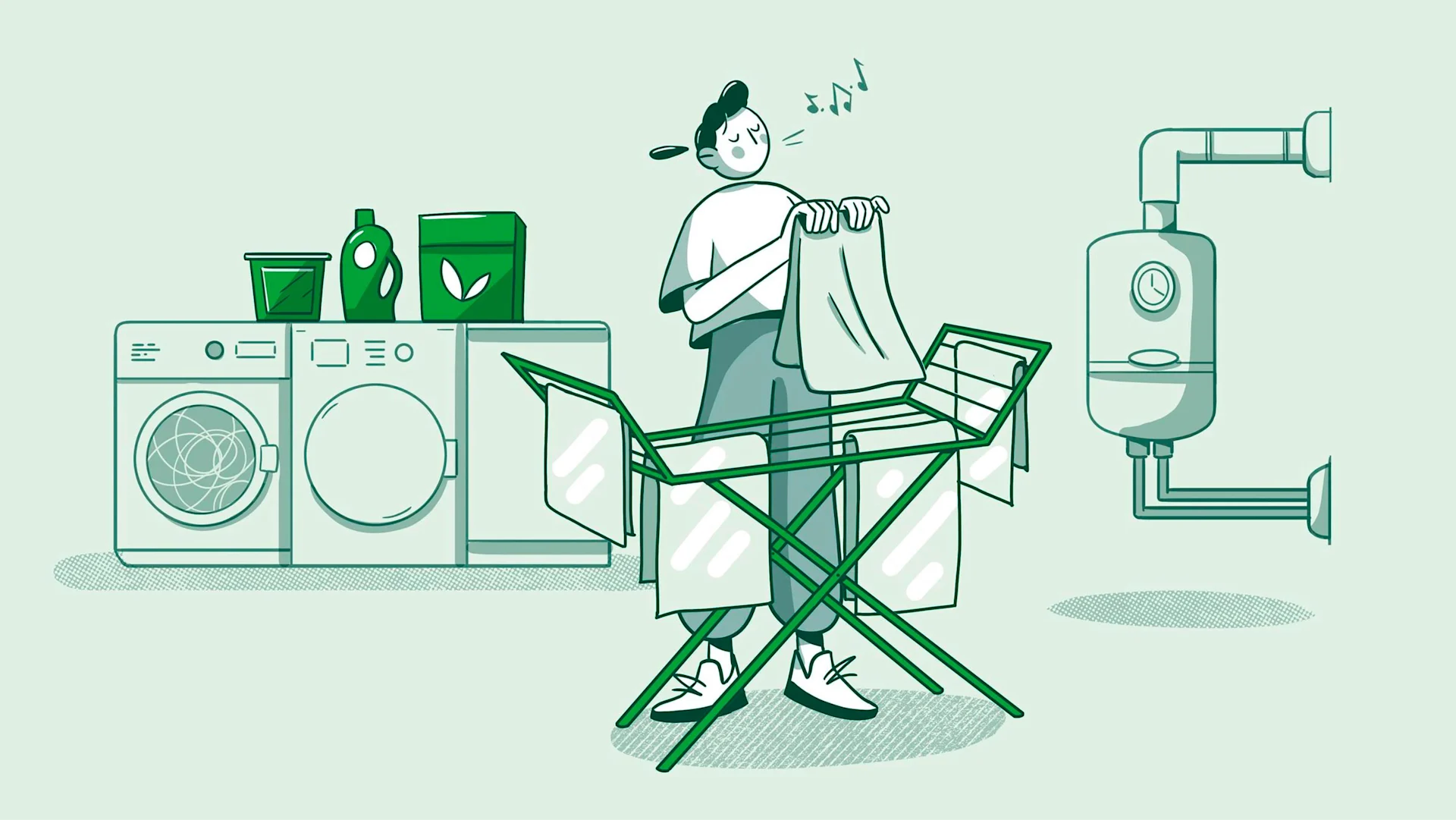
Always try to purchase the most energy-efficient appliances available – the energy label has a standardised scale from A (very efficient) to G (not efficient) to help you. Always bear in mind that, the larger your TV screen and the higher its resolution, the more power it consumes.
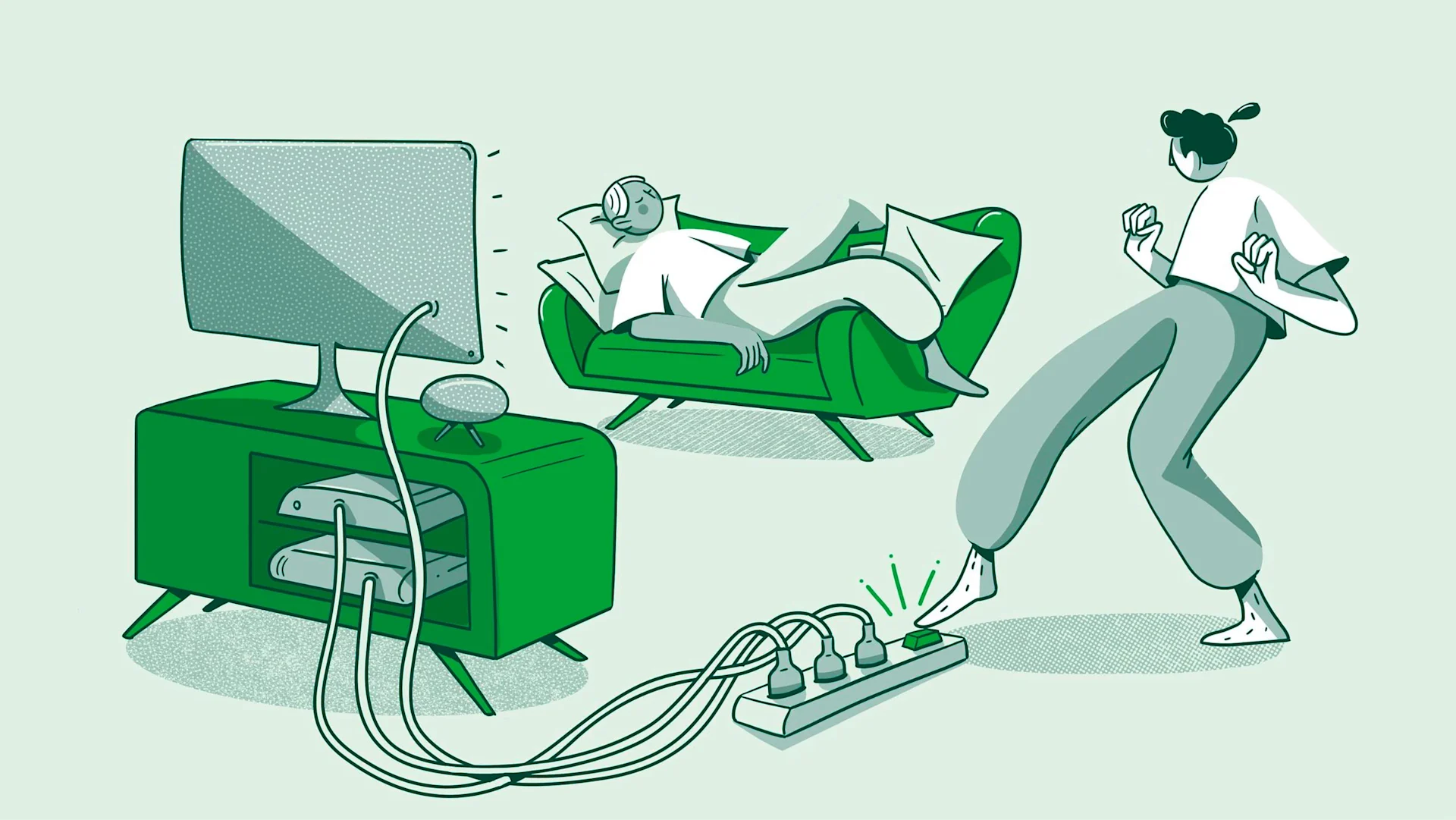
Always switch off electronic appliances completely before going away in order to prevent unnecessary power consumption. Even better, always use switchable multi-sockets, and switch them off when the appliances connected to them are not in use.
Take discarded or broken electronic appliances to a business or a collection point for recycling – the costs are included in the purchase price.
Put your energy-saving knowledge to the test at home!
You thereby save electricity as well as energy and help to protect the climate.